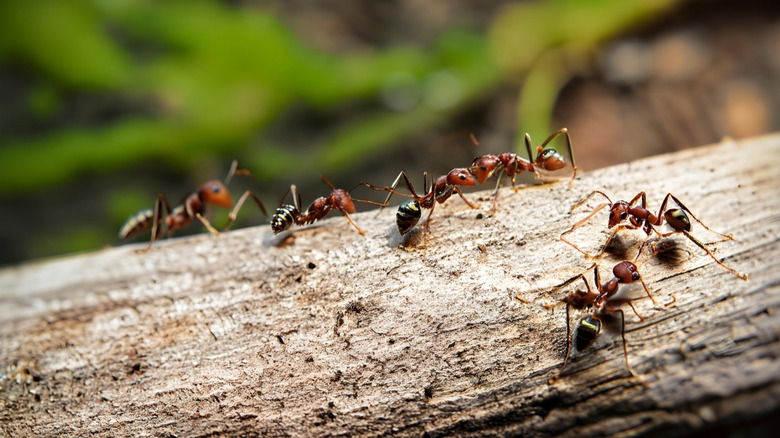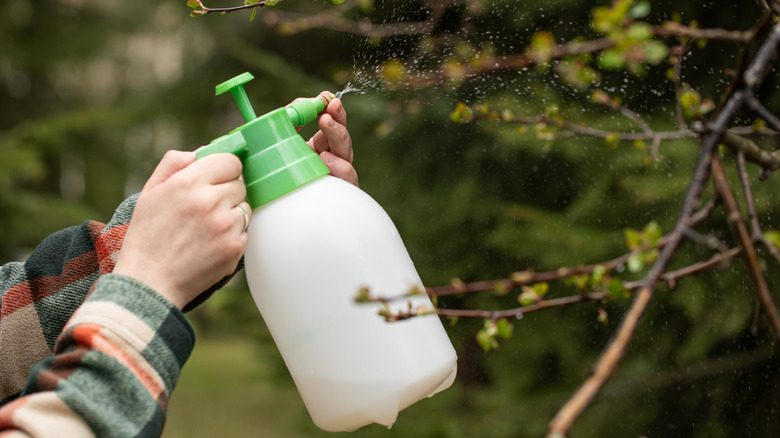Keep Ants Out Of The Garden With A Fresh Scent They Won't Go Near
At first, it's just a single ant slipping between the cracks of your patio stones. Then, like clockwork, more appear — crawling up planter sides, zigzagging over mulch, and vanishing beneath leaves. Within days, they've claimed your garden like it's their territory, building nests in the soil and weaving invisible scent trails across every surface. If you're looking for a way to get rid of ants in your garden, without resorting to harsh chemicals, patchouli oil might be worth a try.
Ants depend on chemical trails to communicate and navigate, making a chemical roadmap to crumbs and cover so others can follow. However, patchouli oil can scramble those signals altogether. With their scent paths disrupted, ants can't retrace their steps or pass messages along, making it much harder for them to keep coming back. Apart from repelling ants, it could also harm any that are currently already there.
Natural compounds in the oil have been shown to kill multiple ant species and repel them, even at very low concentrations. While it won't wipe out a colony overnight, diluted patchouli oil may help get rid of ants in trees, garden beds, or plant roots. It may also help deter other pests like flies, mosquitoes, and even lice, making it a versatile option for natural garden care.
How to use patchouli oil safely in the garden
If you want to give patchouli oil a try in your garden, start by mixing 15 to 20 drops of pure essential oil with 1 cup of water and about half a cup of white vinegar. Pour the mixture into a spray bottle and shake well before each use. You can spray it directly onto areas where you've noticed ant trails, like planter edges, the base of raised beds, cracks in hardscape, or around compost bins and mulch piles. Focus on entry points or high-traffic spots where ants tend to gather.
You'll likely need to reapply every few days, especially after watering or rain. It's a good idea to throw on a pair of gloves while mixing and spraying. Patchouli oil doesn't often irritate skin, but it's still smart to avoid direct contact in case you react. That said, essential oils aren't risk-free. Patchouli oil, in particular, can be harmful to cats. If you have outdoor cats roaming near your garden, keep them away from freshly treated areas. Even small amounts of undiluted essential oil can be toxic if ingested.
Another thing to keep in mind is scent fatigue. Over time, ants might get used to the same smell, making it less effective. To keep the scent barrier working, try switching things up with other oils now and then. Citrus oil, peppermint, clove, or cedarwood are all strong alternatives that can help repel ants without the use of pesticides. But, if you're dealing with a serious infestation that just won't quit, it's worth calling in a professional to tackle it safely and thoroughly.

